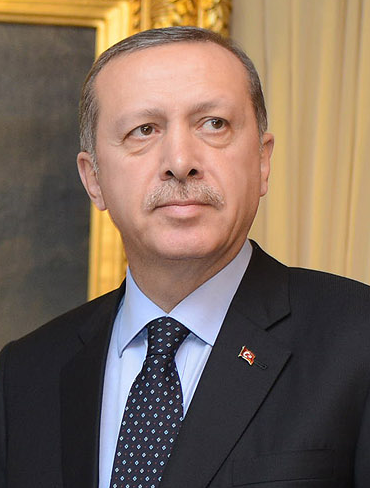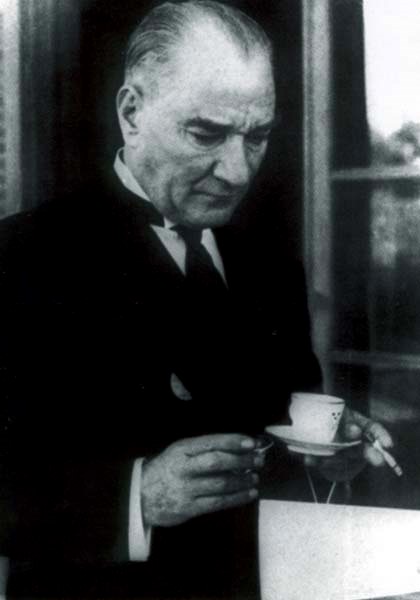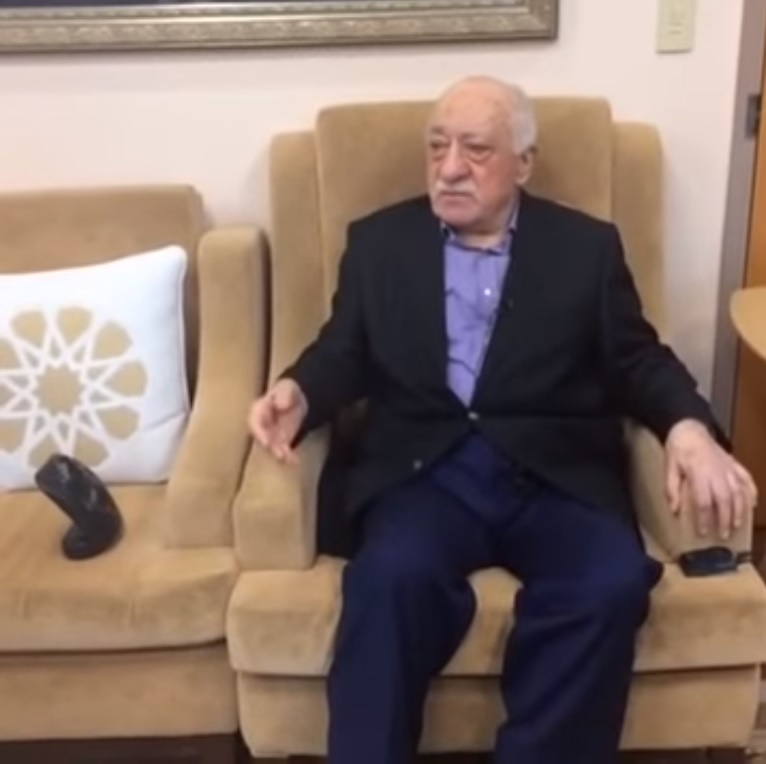Kamal Ataturk’s dream of a westernized, secular, and prosperous Turkey dies at the hands of Tayyip Erdogan

Copyright: Gobierno de Chile [CC BY 3.0 cl (https://creativecommons.org/licenses/by/3.0/cl/deed.en) or CC BY 3.0 cl (https://creativecommons.org/licenses/by/3.0/cl/deed.en)]
Following World War I, Kemal Ataturk took power in Turkey. He proceeded to both secularize and, to a degree, revolutionize his country. The vision that he achieved was to turn Turkey toward the West. He minimized the role of Islam, empowered women to vote, outlawed the use of headscarves in public, legalized alcohol, replaced Friday with Sunday as a day off, and abolished the Islamic ministry of canon law and pious foundations. He also switched the Turkish language from the Arabic script of the Koran to a modified version of the Roman alphabet. Ataturk is aptly remembered as the father of modern, democratic Turkey.

Copyright: Original photographer unknown. [CC0], via Wikimedia Commons
However, it is doubtful that Ataturk would recognize the Turkey of today. Slowly and incrementally, by playing upon the leanings and beliefs of the vast numbers of the Turkish population who are deeply religious and practice a fundamental adherence to Islam, Recep Tayyip Erdoğan has undermined the democratic institutions that Ataturk established and nurtured. In doing so, Erdogan has emerged as Turkey’s ever increasingly powerful despot.
Turkey has a history of regimes which attempted to undo the governmental institutions that Ataturk put in place. The corrective to such machinations was always the military. At times of political problems, the military would step in and put Turkey back on democratic footing. Thus it is that Erdogan, fully aware of this history, fired and/or imprisoned Turkey’s military leadership under whatever pretenses he could employ. Coupling this with his great popularity from his religiously oriented base, he managed, over time, to garner and retain for himself an ever growing hold over the reins of Turkish power. For example, in the last election he was able to secure for himself the sweeping powers of an ‘executive presidency’ which replaced the office of prime minister, and modified the role and reduced the powers of the parliament.
The single most important event in Erdogan’s gradual power grab was the failed coup that members of the military attempted in 2016. In its wake, Erdogan jailed tens of thousands of Turks whom he accused of supporting the attempted overthrow of his government, placing blame on the US based, Turkish cleric, Fethullah Gulen, Erdogan’s sworn enemy; and purging Turks from all walks of life, from university professors, police, military members and teachers, to judges and doctors. In his successful drive to control the media, Erdogan has particularly targeted journalists. Turkey, in fact, has now imprisoned more journalists than any other country on earth.

Copyright: AlphaX News [CC BY 3.0 (https://creativecommons.org/licenses/by/3.0)], via Wikimedia Commons
Erdogan has steered Turkey, a NATO member and once a staunch foe of Russia, into greater and greater conflict with his Western allies. Unable to secure membership in the European Union, having suffered consistent rejection based on violations of human rights and the absence of the rule of law, Erdogan recently has chosen to seek pathways which disturb, aggravate and anger his NATO allies. He has even threatened to invade islands in a dispute with another NATO member, Greece. His turning to the Russians to purchase their S-300 and S-400 missile systems create incompatibilities with NATO weaponry and lead countries like the United States to question Turkey’s commitment to NATO and its longer term, strategic intentions.
One of the major problems Erdogan has had to deal with is the large Kurdish population which inhabits southeastern and eastern Anatolia. There are an estimated ten to fifteen million Kurds living in Turkey and, having had their native language outlawed and having been pressured to assimilate Turkish culture, many actively have resisted Turkish rule. Actually there are Kurds living throughout the Middle East region, inhabiting portions of Turkey, Syria, Iraq and Iran. From time to time, Kurdish aspirations to break away from these countries and form their own have arisen. But, for Turkey, one of the greatest concerns consistently comes in the form of Kurdish terrorism emanating from groups like the violent, leftist, PKK. In response to the threat that these Kurds present and in the wake of the failed coup, Erdogan has cracked down. Fearing a spillover into Turkey’s Kurdish population, Erdogan, most recently, threatened military action against the Kurdish fighters in Idlib province in northwestern Syria. However, these forces have been the on-the-ground carriers of the United States’ fight against ISIS in that region, and the U.S. has warned Turkey against any invasion of the province and action against its allies, the Kurds, there.
Erdogan has not been quiet about his plans to re-establish the Ottoman Empire or as much of it as he is capable. His goal of regaining a prominent place for Turkey in the Middle East and beyond is, in part, an effort to plant Turkish Sunni Islamic institutions in many places beyond the Turkish border. In this, he mirrors a similar thrust by Iran to spread its brand of Islam. But Erdogan’s intentions go far beyond those of promulgating religion. His are economic and political as well. To accomplish these, the Turkish president, has engaged in several different endeavors.
In order to rally his people and displace blame, Erdogan has employed viciously anti-Israel tropes and behaviors. Erdogan supports Hamas, the Palestinian rulers of the Gaza Strip who are an offshoot of the Muslim Brotherhood. Turkey generated the Mavi-Marmara incident in which an alleged relief ship set out from Turkey, carrying a number of provocateurs, seeking to run Israel’s blockade of the Gaza Strip. Israel stopped and boarded the vessels and a struggle involving several fatalities ensued. Erdogan used the incident as a propaganda weapon to castigate Israel and put distance between Israel and Turkey. His pronouncements and behaviors were markedly hostile, rude and undiplomatic. After some time passed, Turkey having elicited an apology and compensation from Israel, the two countries seemed to mend fences. In actuality, trade between the two countries never had ceased. But Turkey cancelled Israeli military arms sales and prohibited Israeli Air Force from using of Turkish air space for practice. Soon thereafter, Erdogan’s back slid once again into vitriol and invective. At that point, Israel eschewed entering into any projects involving creation of a pipeline through which Israeli would send natural gas produced from its wells in the Mediterranean Sea through Turkey to Europe. Not trusting an Erdogan who was running hot and cold toward the Jewish state, Israel perceived a threat that any such enterprise might be brought to failure or worse.
As Turkey and Iran both covet the oil reserves that lie in the northern region of Iraq, and because Turkey is Sunni, and Iraq and Iran are both Shiite, there is little love lost between Turkey and Iran. The Russians have their own agenda in the Middle East and, specifically, in Syria, which does not comport with Turkey’s. The two countries are often at odds. For example, it is to Russia’s benefit to see an end to the Syrian civil war and a continuation to Syria’s Bashar al Assad’s rule. Turkey abhorred Assad even before he began to murder his own people. Erdogan has demanded that Assad be deposed in any postwar settlement. But more importantly, Turkey has been itching to invade and annex parts of northern Syria in order to destroy the Kurdish threat that exists there and to lay hands on rich oil deposits. Unlike Iran which threatens Israel’s existence on a repetitive, near daily basis and whose proxies and forces now nearly surround the Jewish state, Turkey’s anti-Israel pronouncements and acts currently do not constitute a strategic threat. President Erdogan presents more problems to Iran and Russia than he does to Israel. If his vast army goes into action, it is more certain that it will engage with Kurdish forces than with Israeli ones.


